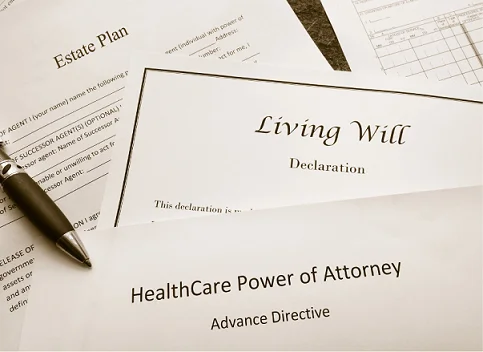
Sometimes, certain life events are what should cause you to establish your estate plan. Here are some common times when it makes sense to start thinking about your end-of-life documents:
Most major life events require you to take a look at your estate plan. In the early days of your adult life, you need to have a will in place. After you have assets that are worth $100,000 or more, it may be valuable to discuss a trust with your estate planning attorney. Similarly, when you purchase commercial property or launch your practice, a trust is a wise investment. If you have children, make sure they are protected with guardianship as well.
Perhaps a better way of looking at it is to break down estate planning documents by your age. The stage of life you are in will have a direct impact on what type of documents you need to have. Here is how that breaks down:
As soon as you become a legal adult, you need to have some estate planning documents in place. Specifically, have these:
Most people will start their families and their careers in their 30s. As a medical or dental care provider, this can mean significant assets. Make sure those assets and your loved ones are protected with these documents:
By your 40s, you will hopefully already have a will, trust, and power of attorney documents in place. If not, that’s the first place to start. Once your plans are finalized, it’s time to talk to your parents. Make sure they have the right documents in place so you can protect them as they get older.
At this point, you should have all of your estate planning documents in place, but many people do not. By the time you reach your 50s, you need to play catch up quickly to ensure everything is where it needs to be.
By the time you reach your 70s, you should have your estate plan fully completed. It needs to be clear and communicated with your beneficiaries. If you are still working, your business partners should also know where your documents are and what your plans for your practice are. During this stage of life, review and update your plan when your family or business circumstances change.
So, when should you start planning your estate? No matter your stage of life, the answer is right now. It’s never too soon to be thinking about your loved ones and your business and what will happen to them when you are gone.
If you are looking for help with an estate plan from a team of attorneys that understands the unique needs of medical and dental practitioners, reach out to Dental & Medical Counsel to schedule a complimentary consultation with Ali Oromchian. Let us help you create or update your estate plan to reflect your goals and your current stage of life.
Don't fall victim to estate planning pitfalls, contact us today!

Stay updated with industry news!
1904 Olympic Blvd, Suite 240
Walnut Creek, CA 94596
Phone: 925-999-8200
Fax: 925-884-1725
frontdesk@dmcounsel.com
| Monday | 8:00AM - 6:00PM |
| Tuesday | 8:00AM - 6:00PM |
| Wednesday | 8:00AM - 6:00PM |
| Thursday | 8:00AM - 6:00PM |
| Friday | 8:00AM - 6:00PM |
| Saturday | Closed |
| Sunday | Closed |